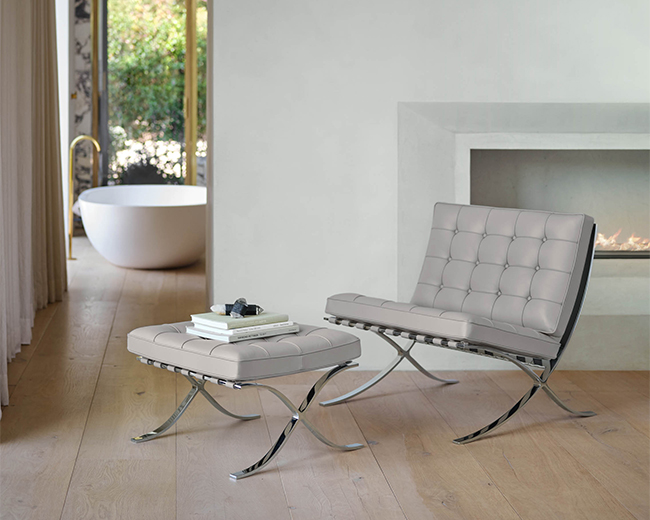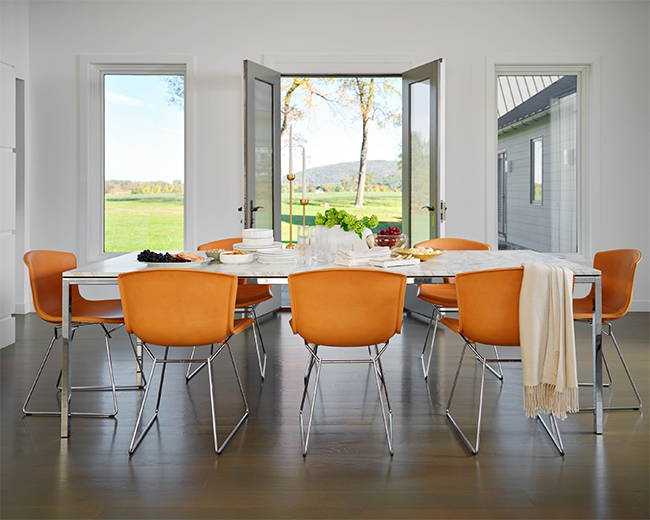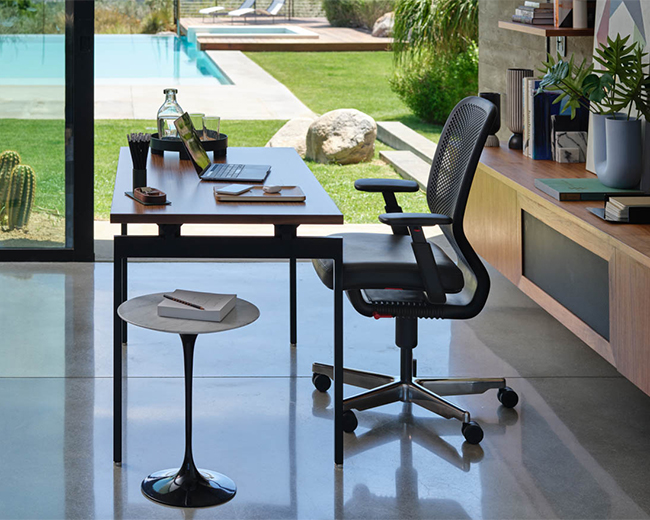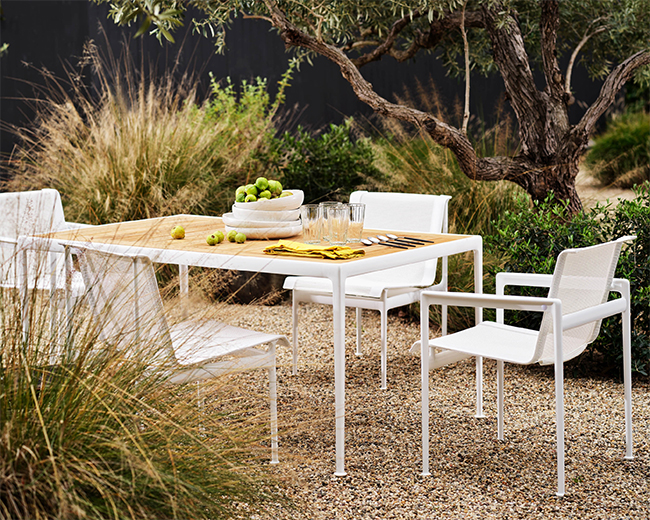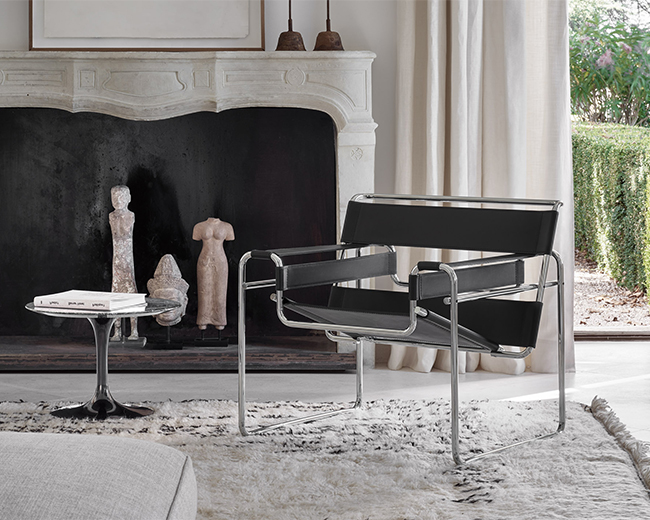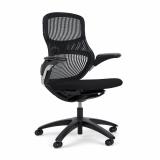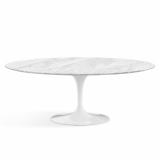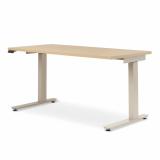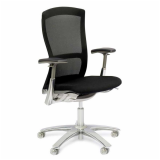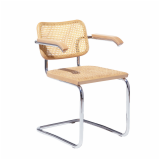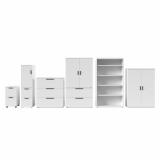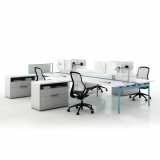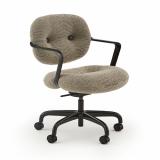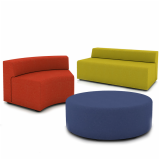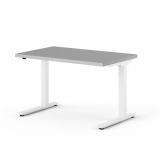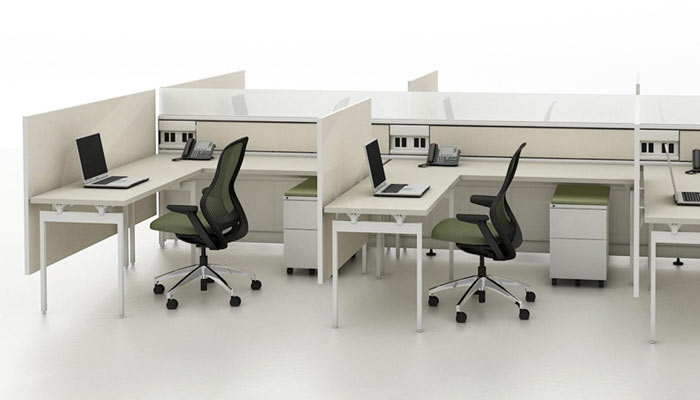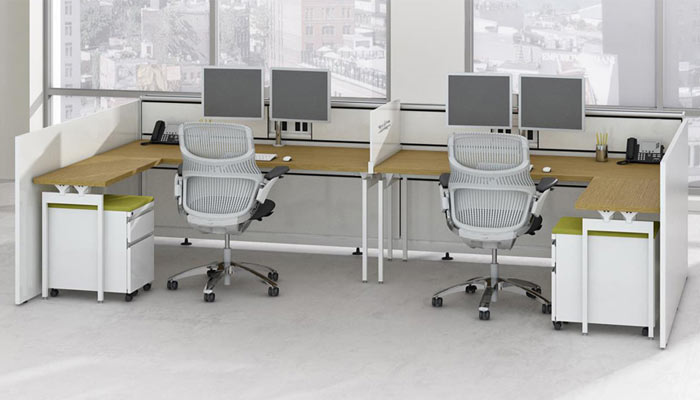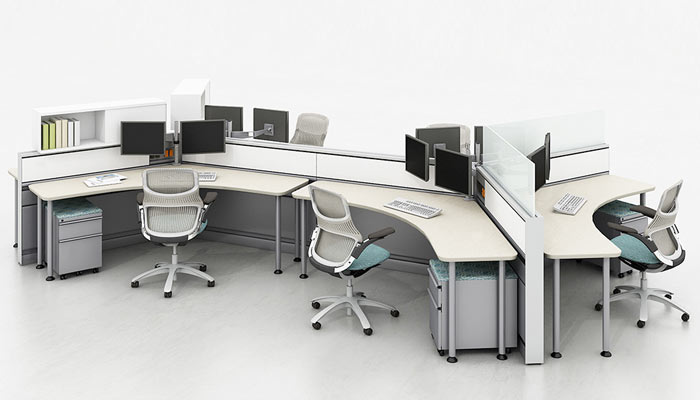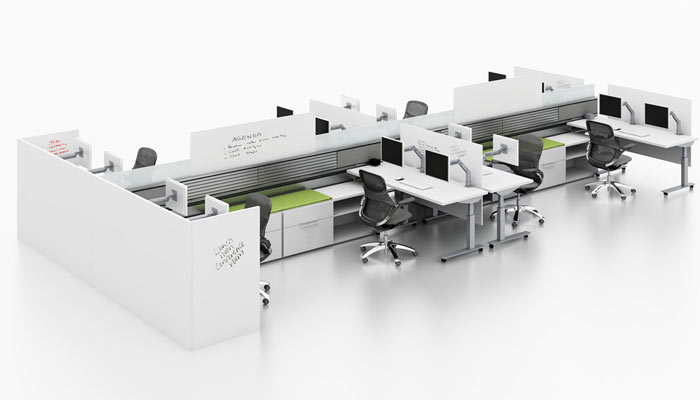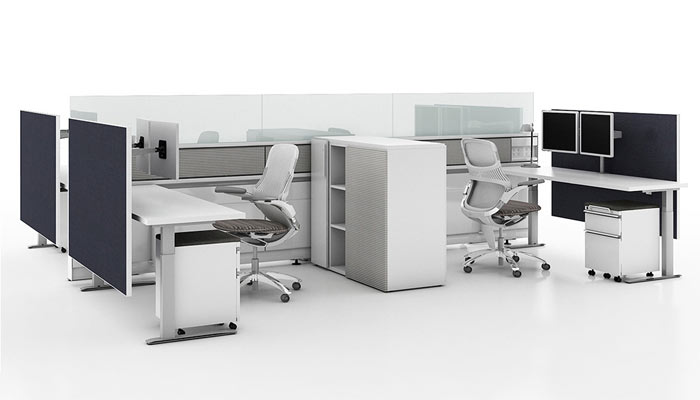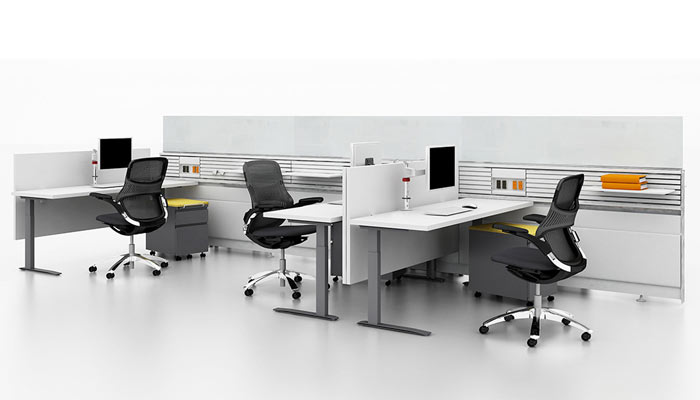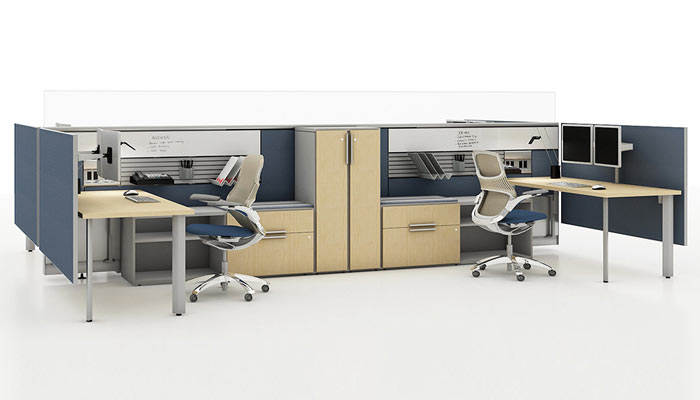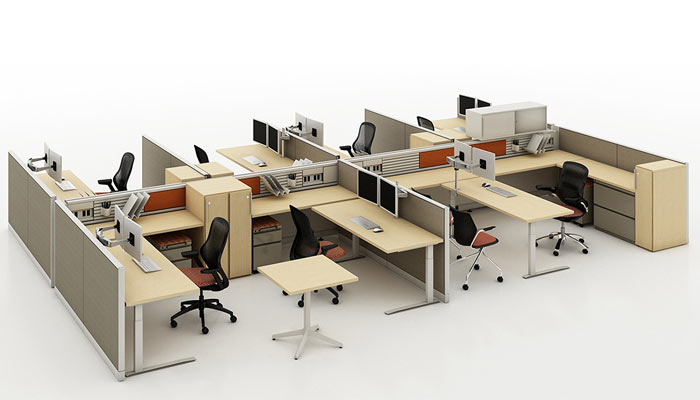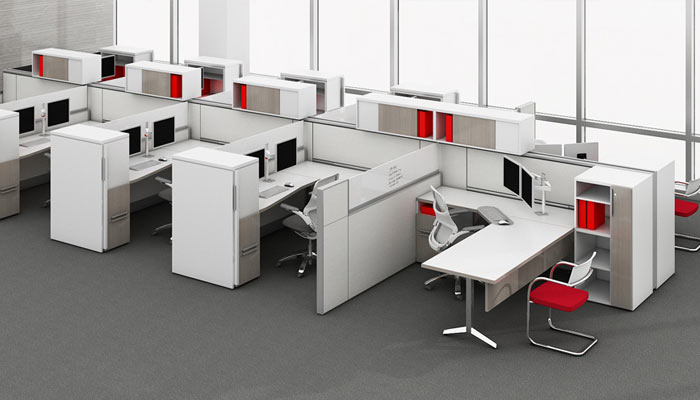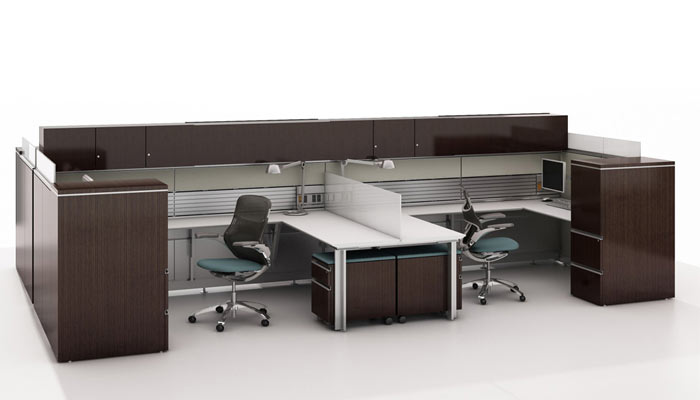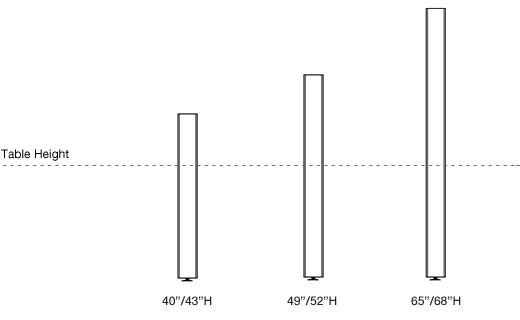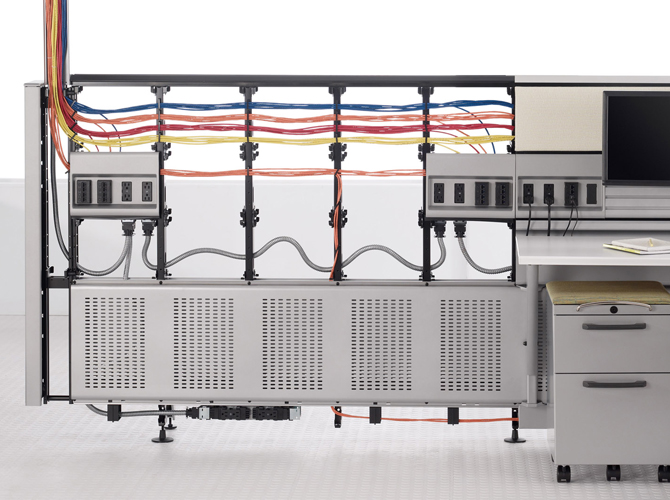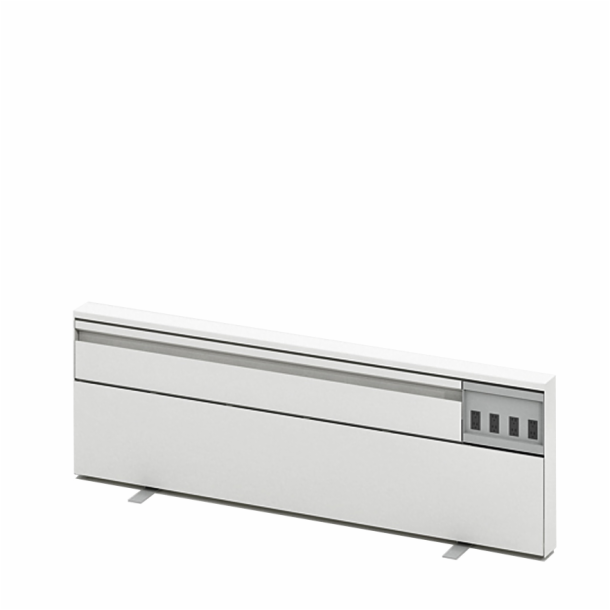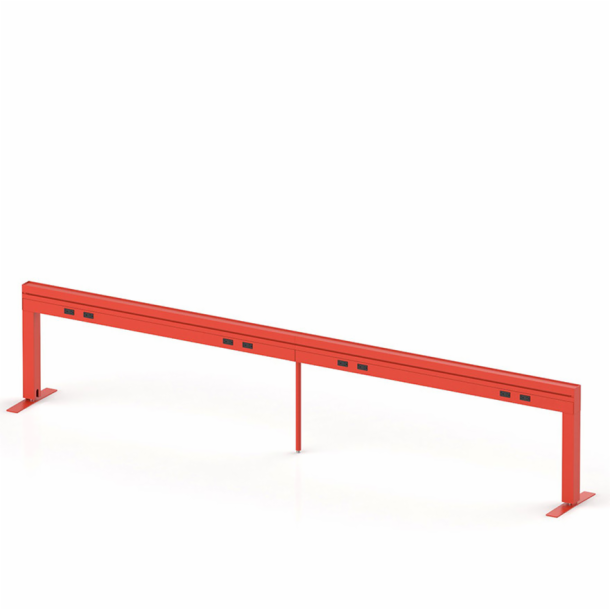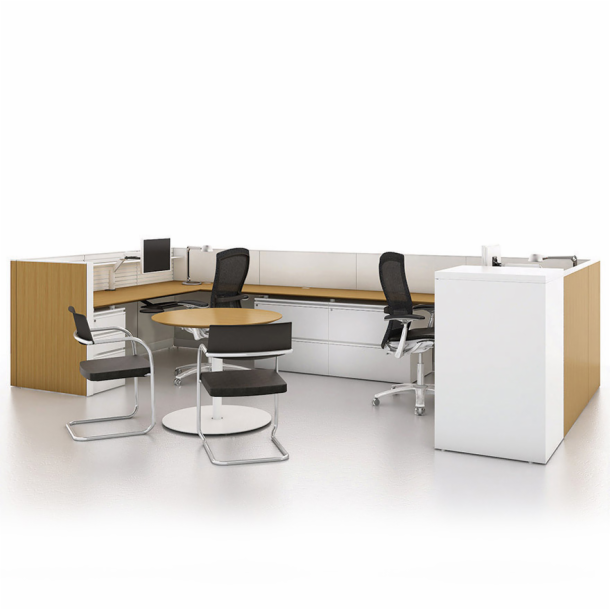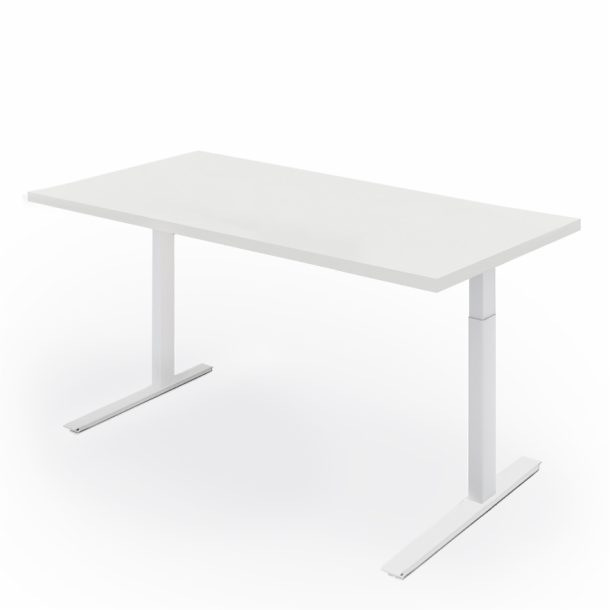At the time of its introduction, the Currents Service Wall represented a revolutionary and unprecedented approach to office system design. Robert Reuter explained its origins in an interview with Knoll historian Brian Lutz:
“The idea for Currents came out of an understanding that work patterns were changing and evolving, that most of the office systems out there were created before computers and that there were new levels of adjustment, flexibility and enclosure required in the office that could no longer be simply ‘Band-Aided’ onto an existing product. It was truly time for a new product with a new approach…Currents was a game-changing product.”
The success of Currents was due in large part to the high quality market survey and in depth research, conducted by Douglas Reuter, which informed the design brief. Robert Retuer recalled: “Currents was the most well-supported, well-managed, well-researched and well-directed product initiative that Knoll had ever done.”
Rozier and Reuter returned to Knoll in 2001 to revisit and update Currents. Adding Fence as well as additional freestanding elements, the pair enhanced and expanded the system, making it more flexible and cost-effective. The logic of Currents has made its way into other Knoll systems; the Service Wall was incorporated into the AutoStrada product line, while an adapted version of Fence was introduced with Antenna Workspaces.
